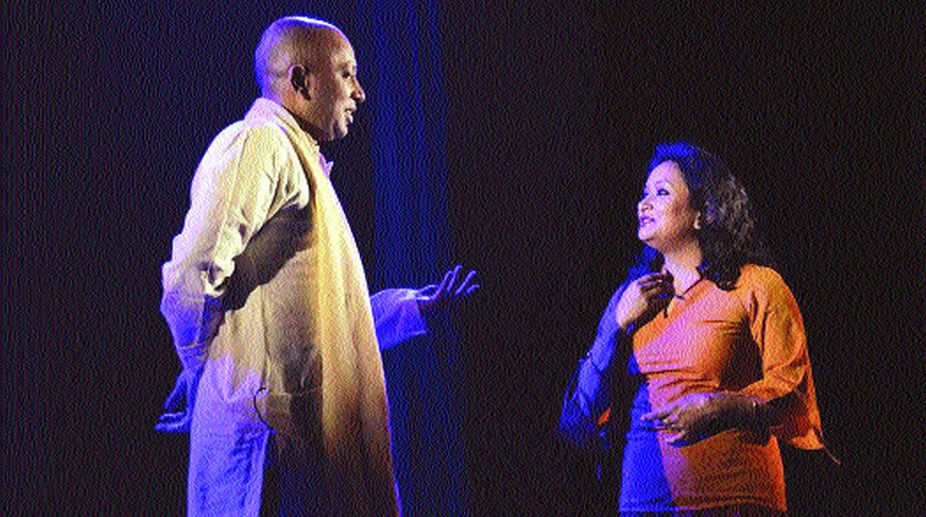Bollywood’s gentle reminder about ageing elders living alone
In the recent annals of Bollywood, a remarkable transformation has taken root, one that has seen the celluloid tapestry donned with threads of empathy and enlightenment.

William Shakespeare wrote, “The play’s the thing,” when Hamlet was to observe the King’s conscience. But drama can signify many other powerful thoughts. We have read about India being a diverse nation with many languages and dialects along with different beliefs. Akbar confronted the issue with help from personalities like the famous musician, Tansen to foster a level of tolerance between India’s different religious beliefs. Maharaja Ranjit Singh’s quote, has found its way into books of history, “my eye and God’s eye are one eye; one seeing, one knowing, one love”.
They were people who read and imbibed ancient Indian literature. For example, in the Mahabharata, Bhriju tells Bharadvaja that caste divisions relate to differences in physical attributes of different human beings. Then logically all castes are mixed. That is followed by a profound question — we all seem to be affected by desire, anger, hunger, fear and sorrow, then how do we have caste differences? The scriptures tell us that all human beings have the same father, so children of the same father cannot have different castes.
Advertisement
But we now live in 2017, centuries after Akbar, Tansen or Ranjit Singh. Leaders of India still grapple with one vital question — how do we unite our people and what can we use as a conduit to connect ourselves with each other, notwithstanding our diverse beliefs? How do we unify this apparent fragmentation? India has its own share of playwrights, poets and musicians, whose profound works, in history, when articulated through storytelling and drama, actually gives us the faith that our greatest strength is our diversity because we no longer feel sequestered. Michel de Montaigne, born in 1533, studied law to become a counsellor and he devoted himself to reading and writing. In an essay, On Books, he wrote, ‘We must without distinction leaf our way through authors, ancient and modern, so as to learn about the matter which they treat in their divergent ways.”
Advertisement
The conduit we seek can verily be the theatre as the power brought forth by this form of art is phenomenal. It is already happening and actors and musicians, of one organisation in Bengal, are helping to unify the country. This remarkable organisation is doing exactly what Montaigne had prescribed because their performances are inspired by India’s talented writers, all of whom evoke their own “matter.” The organisation, run by Pranay and Sohini Gupta, is called Tagore Appreciation Society, which also looks after people in rehab for various addictions and underprivileged children.
TAS believes in a form of theatre that unites cultures, arts, languages, religions and people. Their organisation is a combination of people who pursue a vision; they are playwrights, theatre directors, and actors. Their intrinsic message says that in this volatile world only the integrative expression can be at the heart of human unity. This interpretation has transcended earlier efforts in history by Akbar and others. But that is what history is all about. It is a sequence of living and learning which transcends noble endeavours of the past.
Pranay and Sohini’s indefatigable pursuits have for the last few years formed a niche by virtue of being multi-lingual and cross-cultural. International luminaries like Zubin Mehta, Gulzar, Soumitra Chatterjee and others have acknowledged presentations by TAS. Pranay Gupta, a leading inspirational speaker on leadership, says, “Our work is a rebellion against stereotyping traditional performing arts, and we seek to fuse this art with dynamic and fresh ideas that inspire to entertain.” New blends of artistic forms through live storytelling as a medium, from Kabir to Kavi, are recent examples of some performances. Sohini Gupta emphasises that theatre is not dying but is thriving.
The art of storytelling is therefore integral to the work of this organisation. Fresh ideas weave through the central thread of storytelling and Pranay also presents this to corporate companies by his “Power Talks”. One particular performance, From Kabir to Kavi, encompasses a tribute to Kabir and Rabindranath Tagore. It includes live music with musicians who have travelled the world and the production is tri-lingual with dialogues in English, Hindi and Bengali. Kabir’s verses are articulated in the live singing of Rabindrasangeet. The play reflects the hypocrisy of a world dominated by hatred and racism. It is an ode to love, peace, joy and harmony.
Tagore’s Gitanjali has been produced as a unique medley of storytelling and shows a view of life through a doorway of beauty. Pranay Gupta is an accomplished theatrical raconteur and his role must carry the entire production, replete with diction, expression and a voice that will pause for effect at the right time. He had imbibed the values of speech and drama at his alma mater, St. Paul’s in Darjeeling, under the tutelage of an illustrious educationist, KK Mustafi, who was also a former student of the famous school. Pranay’s wife, Sohini, is an accomplished actress and this combination has indeed added impetus and dynamism to TAS.
Advertisement